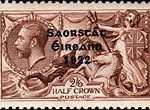Being done, again
RTE’s ‘Nationwide‘ programme, with its focus upon the Church of Ireland drew to a close, and I turned back to typing the order for next Sunday evening’s carol service. The programme following, ‘Scannal‘ was in Irish and appeared to be a dramatisation of dealings in a pub in the 1950s. I paid no attention, though the programme was subtitled in English, until the familiar tones of economist David McWilliams appeared, speaking Irish initially, and then switching into English. The story being told in the programme had a centuries old feel about it – ordinary people parting with money in the belief that there were easy profits.
The programme narrated the tale of the development of a Ponzi scheme, a scam whereby early entrants receive large dividends from the investments of later entrants; the scheme working just so long as the base of the pyramid can be made wider and wider, that more and more people can be drawn into parting with their money.
The story had been revived in a newspaper back in 2006, six months before Bertie Ahern resoundingly triumphed in the general election; a time when the economy was still booming, but when there were serious being asked (and dismissed by Ahern). Rory Egan wrote in the Sunday Independent
Once upon a time, back in 1954, a man named Paul Singer decided to make his fortune in Ireland after his business collapsed in the UK. He approached a reputable family auction house run by the Shanahan family and persuaded them to join him in a new venture: buying and selling stamp collections.
On the face of it, Singer’s plan was sound. His idea was to buy up a number of eclectic stamp collections, sort the various stamps into countries or ‘First Day of Issue’ albums and sell these specialist collections at a profit. He appealed to the ‘Money in Grandma’s Attic’ in all of us by telling the Irish public that there was an insatiable appetite for the old Irish Free State stamps. But the smoke and mirrors really began when he encouraged the general public to invest as little as £10 in one of his syndicates, which he practically guaranteed would make huge returns.
One must remember that in those days the only way to make a fortune was to inherit or win the Sweepstakes. All of a sudden syndicates were buying stamp collections and selling them months later for profits of 20 or 30 per cent. It was possible to double your money inside a few years. People invested their life savings and for a while it seemed to be too good to be true. And it was. The truth was that most stamps sold at Shanahan’s were bought by other syndicates run by Singer.
On May 9, 1959, a mysterious robbery occurred in Shanahan’s, with over £300,000 worth of stamps stolen. All of a sudden, all the syndicates tried to cash out. Singer was arrested on fraud charges, but he was eventually freed on a technicality and promptly left the country.
Thousands of investors lost money, but the country learnt a lesson and we would never again allow ourselves invest in something that was so hyped up and inflated to unrealistic values. No, we’re much smarter now – we put our money in property.
Reverting from English to Irish towards the end of the programme, McWilliams spoke of the Singer scam as a triumph of hope over experience. Much of economic history history is a triumph of hope over experience. George Bernard Shaw, a founding figure of the LSE is said to have once commented, “we learn from history that we learn nothing from history”.
Few people will admit that Rory Egan’s 2006 column was correct, that many of the property investors of the 2000s were as naive as those who invested in the sale of postage stamps at Shanahans’ auctions in the 1950s . We don’t want to accept that we built our hopes on pyramid selling, on a Ponzi scheme. We believed tricksters who took what was before our eyes and told us it was different – that an Irish Free State postage stamp was hugely valuable; that the bit of pavement outside a block of flats was, in fact, a plaza where the sun always shone; that a flat overlooking a dual carriageway represented elegant living; that prices would rise and rise, and that if they did not, there would be a ‘soft landing’.
If a Paul Singer came along today, there would still be people who would part with their money.



Thank you for publishing my article on Shanahan’s Stamp Auctions. I hadn’t seen it for many years. It does show how we can’t seem to learn from our mistakes. Kind regards to your readers. Rory Egan
Thanks for the comment, Rory.
If I were you I would have the article enlarged and pasted in prominent places.
Good comparison – though at least you can live in a house. One house, that is.